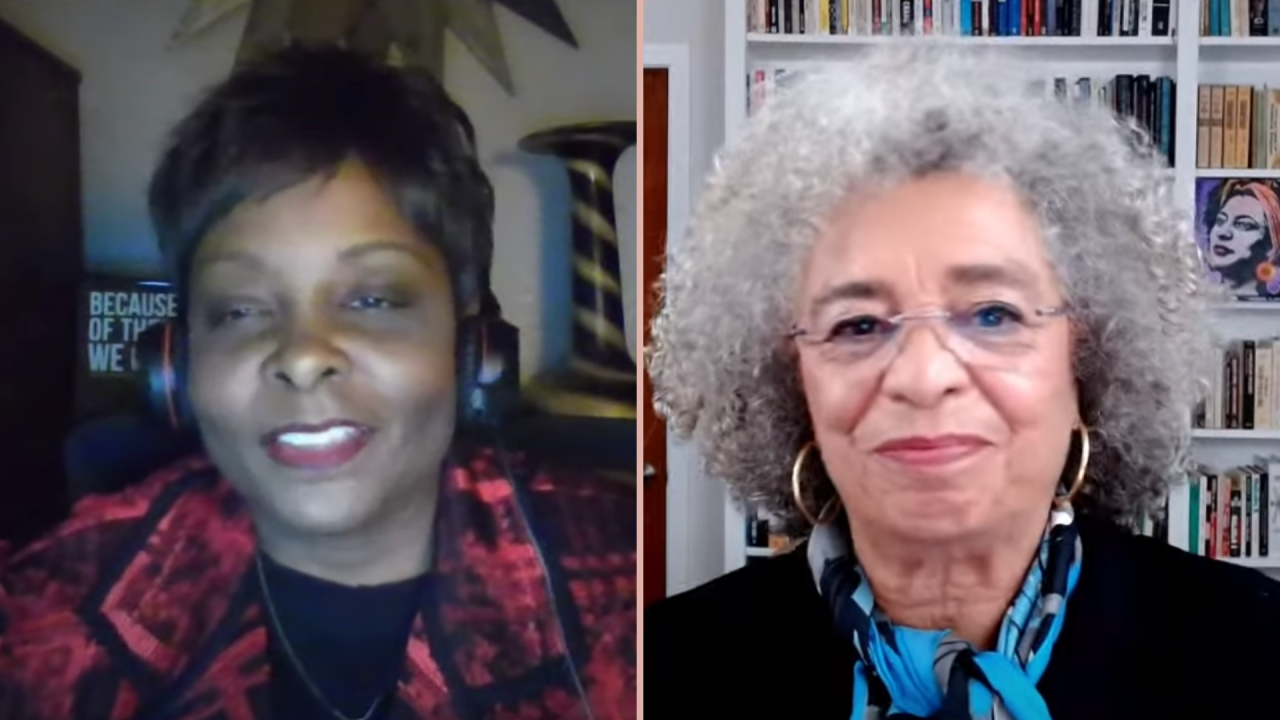
What I learned about unity from my interview with Angela Davis
----------
Is unity the right goal for this moment?
This was one of several questions I asked Angela Davis, renowned political and civil rights activist, after she delivered the Distinguished Lecture on Tuesday night.
Her response affirmed and challenged my own appeal for unity when confronted with problems we must address. “Unity by itself is abstract,” she began. “Unity makes more sense when there is something around which we organize and a reason for creating the unity.”
Calls for unity are often understood at the individual level and are often rejected as a naive or delusional strategy by movement advocates. But the unity Angela Davis is referring to is one forged through collective struggles experienced by diverse members of our campus, our state, our nation, even our world. Perhaps if we learn to zoom out a bit and see ourselves in those common struggles, we will forge the connections needed to dismantle systems of oppression and create environments where everyone can thrive.
Unity in Black liberation struggles
Black History Month has never been just about Black history. In her lecture, Angela Davis reminds us that “there has never been a time in the Americas where there has not been resistance.” Black resistance has enabled and intertwined with the resistance movements of Indigenous peoples, white feminist movements, immigrant and working-class struggles as well as contemporary struggles for democracy and climate justice. In the histories and futures of Black struggle, we see changes that are beneficial to all.
Unity in the purpose of higher education
When asked about the role of higher education, Angela Davis commented that “education and liberation always go hand in hand.” The purpose of higher education here and elsewhere is to build a better world. Yet we know that the university is a structure that has helped “produce and reproduce racism.” In our journey to become an anti-racist campus and fulfill our true purpose as educators and administrators, we must listen to, engage, and unite the diverse struggles for equity that persist today.
Unity in collective imagination
Because we are so steeped in the structures of systemic racism, it takes imagination —collective imagination—to survive these systems but also transport ourselves somewhere altogether. When we invite others to join us in this imaginative work, we can begin to envision how our collective struggles could unite through collective action. “If we don’t have that collective imagination,” she says, “there’s no way we can generate the kind of passion to move along a trajectory that promises us radical social transformation.”
THIS is the kind of unity we need now.
To get there for ourselves, we must prepare to acknowledge the Black struggle for what it is and what it has delivered us—the catalyst that has delivered widespread change and benefits for us all. We need to have the courage to envision and build a better world, ever persistent in challenging old systems and structures that no longer serve our higher purpose. And we must dare to dream for what’s possible, with reckless abandon through our collective imaginations.
I know, deep in my heart, that we can reach true UNITY.
It may be our most redeeming quality yet and our greatest hope to effect the change we wish to see.
--------------------
Thank you to all the University of Arkansas students and organizations (Volunteer Action Center, Associated Student Government, Distinguished Lecture Committee and the Center for Multicultural and Diversity Education) that had the collective imagination to bring Angela Davis to our campus as part of the Envisioning Justice series.
In case you missed it, you can watch the interview on YouTube.
Analyst Chemist III at Pfizer
3yAmazing job Yvette !! I enjoyed the conversation!!! Rock on!
Doctor of Philosophy (PhD) Sociology
3yThis was outstanding! Thanks again so much for sharing!
Ernest N. Morial Endowed Professor at Xavier University
3yGreat to see you still doing it big!